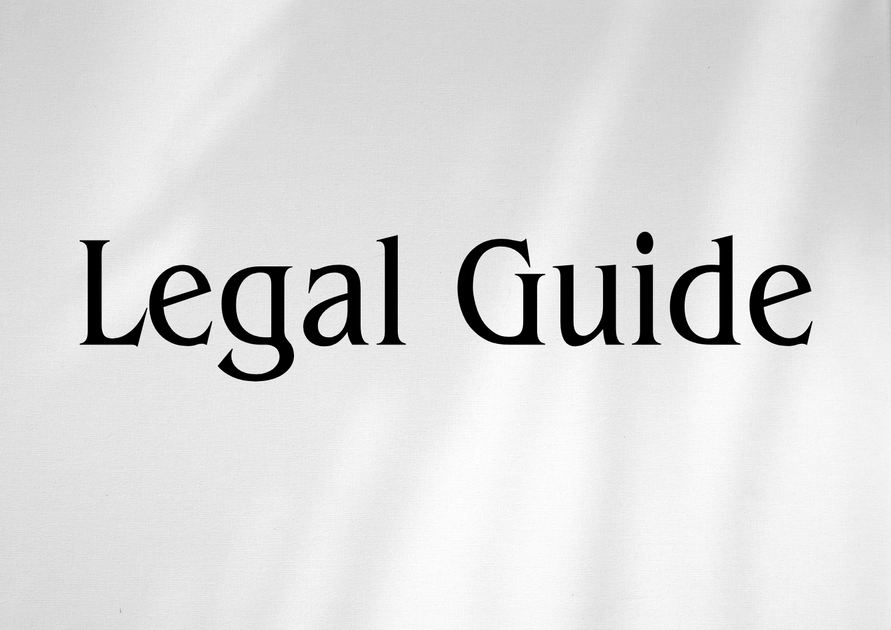Introduction: Setting the Scene for International Arbitration in the UAE
With the growth of the United Arab Emirates as a global hub for commerce, investment, and trade, the management and resolution of cross-border disputes have never been more critical. The complexity of international business dealings, investment flows, and commercial agreements calls for robust, efficient mechanisms for dispute resolution. In this context, international arbitration has become a preferred choice for parties seeking neutrality, enforceability, and procedural flexibility.
The recent legislative landscape in the UAE—especially updates to Federal Law No. 6 of 2018 on Arbitration, along with new Cabinet Resolutions and Ministerial Guidelines up to 2025—underscores a decisive evolution towards aligning UAE arbitration practice with international standards, notably UNCITRAL. This article provides a comprehensive analysis of these developments, examining how new regulations shape the conduct of arbitration, the practical considerations for compliance, and the wider impact on businesses and legal practitioners operating in the UAE.
This expert legal commentary is tailored for business executives, in-house counsel, HR managers, and legal practitioners who must navigate the intricacies of international dispute resolution. Through detailed breakdowns, real-world examples, consultancy-grade analysis, and strategic recommendations, we aim to provide readers with meaningful insights to support informed decision-making in the UAE’s rapidly evolving legal environment.
Table of Contents
- Overview of International Arbitration Laws in the UAE
- Key 2025 Updates and Recent Legal Developments
- Arbitration Process and Practical Considerations
- Enforcement of Arbitral Awards in the UAE
- Comparison: Previous vs. Current Arbitration Laws
- Case Studies and Practical Scenarios
- Risks, Compliance Strategies, and Best Practices
- Conclusion and Forward-Looking Recommendations
Overview of International Arbitration Laws in the UAE
The Legal Framework: From Federal Law No. 6 of 2018 to 2025
The UAE has long recognized the importance of arbitration as a tool for efficient dispute resolution. Historically, the legal basis was a chapter within the UAE Civil Procedure Code (Federal Law No. 11 of 1992, Articles 203-218). However, the paradigm shift came with the enactment of Federal Law No. 6 of 2018 (the “UAE Arbitration Law”), designed to modernize and internationalize the UAE arbitration landscape.
This statute—based substantially on the UNCITRAL Model Law—provides a comprehensive structure for the conduct of arbitration in the UAE, whether ad hoc or institutional. It covers the formation of agreements, appointment of arbitrators, arbitral procedures, interim measures, and the recognition and enforcement of awards. Over the years, subsequent Cabinet Resolutions have expanded on procedural specifics, while Ministerial Guidelines have clarified practicalities, such as electronic evidence and remote hearings.
Key Institutions: DIAC, ADGM, and DIFC-LCIA
The UAE offers a range of world-class arbitration centres, most notably:
- Dubai International Arbitration Centre (DIAC)
- ADGM Arbitration Centre (Abu Dhabi Global Market)
- Dubai International Financial Centre (DIFC) and its partnership with the LCIA
Each institution operates within its own rules framework and offers international-standard facilities, with an increasing emphasis on digital innovation and user-centric processes.
Scope: When Does UAE Arbitration Law Apply?
Under Article 2 of the UAE Arbitration Law, its provisions apply when:
- The arbitration takes place in the UAE
- The parties agree to subject the arbitration to the UAE law
- The dispute arises from a legal relationship governed by the laws of the UAE
Importantly, parties retain autonomy to choose foreign law, seated arbitrations, and procedural rules—subject to public order considerations.
Key 2025 Updates and Recent Legal Developments
Recent Amendments and Their Implications
The period from 2023 to 2025 has seen pivotal enhancements in the UAE arbitration regime. Reflecting international best practices and responding to market needs, updates include:
- Digital Transformation: Recognizing the admissibility of electronic evidence and virtual hearings. (Cabinet Resolution No. 57 of 2023)
- Interim Measures: Expanded powers for tribunals to grant interim relief more efficiently (Ministerial Guidelines 2024).
- Institutional Enhancements: Reforms to the DIAC statute, collaborative agreements between local and international institutions.
- Enforcement Mechanisms: Streamlined procedures for ratification of arbitral awards in Dubai Courts (Cabinet Resolution No. 65 of 2024).
Relevance for UAE Businesses and Legal Stakeholders
These updates address practical bottlenecks faced by cross-border businesses—speeding up resolution, reducing costs, and increasing predictability. The government’s intent is clear: make the UAE the first choice for regional and international arbitration. For in-house counsel and compliance teams, awareness of these changes is not optional; it is integral for managing contractual risk, protecting investments, and maintaining business continuity.
Arbitration Process and Practical Considerations
Initiating Arbitration: Key Steps and Strategic Decisions
To initiate arbitration, parties must first ensure the existence of a valid, binding arbitration agreement, typically embedded in their contract. The wording must be precise, as challenges to jurisdiction often arise from ambiguities.
Key procedural steps:
- Notice of Arbitration: Sent by the claimant, setting out the dispute and the request to commence arbitration.
- Appointment of Arbitrator(s): Parties can agree on a sole or panel of arbitrators, or defer to institutional rules.
- Preliminary Meeting: Establishes procedural timelines, document disclosure, and other key logistics.
- Case Management: Increasingly digital—hearings, submissions, and evidence can often be managed remotely.
Consultancy Insight: Early strategic planning is essential. Detailed documentation, understanding institutional rules, and quick engagement with experienced arbitration counsel can avoid costly delays and contested procedures.
Interim Orders and Emergency Relief
With the adoption of recent guidelines, UAE arbitral tribunals wield broader powers to grant urgent interim measures—such as asset freezing or document production orders—prior to final award. These additions, codified in 2025 updates, enhance protection for parties seeking urgent recourse.
Table: Arbitration Procedure – Key Steps and Timeline
| Step | Responsible Party | Typical Timeline |
|---|---|---|
| Notice of Arbitration | Claimant | Day 1 |
| Response/Counterclaims | Respondent | Within 15-30 days |
| Appointment of Arbitrators | Both Parties/Institution | Within 30-45 days |
| Preliminary Hearing | Tribunal & Parties | Within 60 days |
| Main Hearing | All | Varies (within 5-12 months) |
| Final Award | Tribunal | Within 6-18 months of commencement |
Visual Suggestion: Process flowchart showing the above steps to enhance clarity.
Enforcement of Arbitral Awards in the UAE
Domestic vs. International Enforcement Pathways
Successful arbitration means little without enforceability. The UAE is a signatory to key international conventions, notably the New York Convention (1958), facilitating recognition and enforcement of foreign arbitral awards. Domestically, the process is governed by Articles 53–58 of Federal Law No. 6 of 2018, with recent Cabinet Resolutions streamlining procedures in local courts.
Enforcement in Onshore and Free Zone Courts
One of the UAE’s distinguishing features is its dual legal system: “onshore” UAE courts and common-law “free zones” (DIFC, ADGM). Parties can select seats and enforcement jurisdictions strategically. Under 2023-2025 updates, mutual enforcement arrangements between DIFC, ADGM, and local courts have been broadened to close enforcement gaps and reduce forum-shopping risks.
Common Pitfalls and Strategic Solutions
- Non-compliant awards (missing formalities, defective reasoning): Correction procedures permitted under revised guidelines.
- Public order objections: Remains a ground for non-enforcement—counsel must draft awards carefully to avoid violation.
- Execution delays: Recent resolutions have imposed tighter timeframes on courts to process enforcement applications.
Consultancy Insight: Early engagement with local litigation support and a pre-enforcement audit of the arbitral award increases execution probabilities and minimizes costly litigation risk.
Comparison: Previous vs. Current Arbitration Laws
Understanding how recent updates impact the legal landscape requires a comparison of the main differences between the “old” regime (pre-2018 and early implementation) and the “new” (post-2023 updates). The table below provides a concise overview.
| Aspect | Old Regime (Pre-2018) | New Regime (2023-2025 Updates) |
|---|---|---|
| Legal Source | UAE Civil Procedure Code, Ch. 3 | Federal Law No. 6 of 2018, Cabinet Resolutions 57/2023, 65/2024 |
| Arbitral Autonomy | Limited, court oversight frequent | Greater autonomy, limited judicial intervention |
| E-Arbitration/Videoconferencing | Rarely recognized | Explicitly permitted, regulated (Cabinet Res. 57/2023) |
| Interim Measures by Tribunal | Unclear or not permitted | Express powers codified (2024 guidelines) |
| Enforcement Timeline | Often protracted, up to 2 years | Streamlined, max. 3-6 months (Cabinet Res. 65/2024) |
Visual Suggestion: Comparative penalty/risk chart for old vs. new regimes.
Case Studies and Practical Scenarios
Case Study 1: Multinational Contract Dispute in Construction
A leading UAE developer enters an EPC contract with a European subcontractor. Disputes arise over delayed materials, complicated by COVID-19 disruptions in 2024. Both parties had included a DIAC arbitration clause seated in Dubai. When arbitration is commenced, the respondent resists on the ground of evidentiary delays and requests a virtual hearing. Under the 2023-2025 rules, DIAC facilitates comprehensive electronic document disclosure and holds hearings via secure videoconference, ensuring progress despite travel restrictions. The case concludes within 13 months, a marked improvement over past average durations.
Insight: The digital-friendly rules allowed uninterrupted proceedings, demonstrating how the UAE’s procedural modernization drives business continuity.
Case Study 2: Enforcement of Foreign Arbitration Award
A UAE-based SME secures a favourable award from an ICC arbitration seated in Paris. The debtor—operating in Dubai—refuses payment, citing public policy. The firm files enforcement in Dubai Courts. Under updated Cabinet Resolution 65/2024, the Court is bound to process and render a decision on recognition within three months, provided the award meets formal criteria. This expedited the UAE company’s access to justice and cash flow.
Insight: Streamlined enforcement procedures enhance investor confidence and reduce financial risk exposure.
Case Study 3: Failed Mediation, Subsequent Arbitration
Two technology companies based in the UAE and India respectively have agreed to attempt mediation before commencing arbitration. Mediation fails. Arbitration is commenced under the ADGM Arbitration Centre under its new rules, with both parties opting for virtual procedural meetings. The flexibility and speed facilitated by the new digital mechanisms lead to a final award within 10 months.
Lessons from Real-World Scenarios
Risks, Compliance Strategies, and Best Practices
Risks Associated with Cross-Border Arbitration
- Jurisdictional Ambiguities: Poorly drafted arbitration clauses can trigger disputes on arbitral authority and applicable law.
- Non-Enforceable Awards: Non-compliance with formal and substantive requirements leads to non-recognition—especially if public order is at stake.
- Costs and Delays: Without preparedness, the cost and duration of arbitration proceedings may increase, especially if interim relief or evidence-gathering is needed.
Legal Compliance and Strategic Recommendations
- Precise Arbitration Clauses: Always specify seat, language, number of arbitrators, applicable law, and institutional rules.
- Update Existing Contracts: Amend outdated contracts to reflect new statutory provisions and preferred institutions/rules.
- Stay Informed About Legal Updates: Regularly monitor changes via the Federal Legal Gazette and official government portals.
- Invest in Digital Capabilities: Ensure readiness for remote proceedings, electronic evidence, and online filing, as required by current guidelines.
- Engage Experienced Counsel: Involve legal experts early for risk assessment, clause drafting, and strategic planning.
- Pre-Enforcement Review: Before seeking enforcement, conduct a legal audit of the award to ensure all local requirements are fully met.
Table: Arbitration Compliance Checklist
| Compliance Item | Best Practice | Why It Matters |
|---|---|---|
| Arbitration Clause Drafting | Use clear, comprehensive language; specify all key elements. | Prevents jurisdictional disputes, wasted time. |
| Choice of Institution/Rules | Select reputable centre, clearly reference applicable procedural rules. | Ensures procedural certainty and modern facilities. |
| Record-Keeping & Evidence | Prepare for electronic submission; maintain organized records. | Facilitates speedy, efficient hearings under new rules. |
| Monitoring Legal Developments | Assign responsibility for monitoring government updates. | Maintains compliance, leverages new opportunities. |
| Pre-Enforcement Audit | Engage legal team to review award prior to court filing. | Reduces risk of challenge or execution delay. |
Visual Suggestion: Compliance checklist infographic to serve as a quick reference for busy executives.
Conclusion and Forward-Looking Recommendations
The UAE has positioned itself at the forefront of international arbitration and cross-border dispute resolution. By integrating international best practices, enabling digital transformation, and strengthening its legal infrastructure through the 2025 legislative updates, it provides greater certainty, efficiency, and enforceability for global businesses in the Emirates.
For business leaders and legal professionals operating in—or with—UAE entities, proactive engagement with these evolving rules is essential. Carefully drafted arbitration agreements, selection of agile institutions, investment in digital readiness, and diligent monitoring of legislative updates are now indispensable to maintaining compliance and achieving favourable outcomes in cross-border disputes.
Looking ahead, the continuous adaptation of the UAE’s legal framework will likely attract even more international investment, reinforcing its reputation as the region’s leading dispute resolution hub. Businesses are strongly encouraged to seek expert legal counsel to navigate these changes, update agreements, and implement robust dispute resolution strategies—ensuring not just compliance, but strategic advantage in a rapidly globalizing world.




